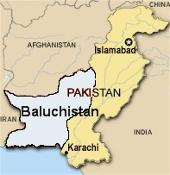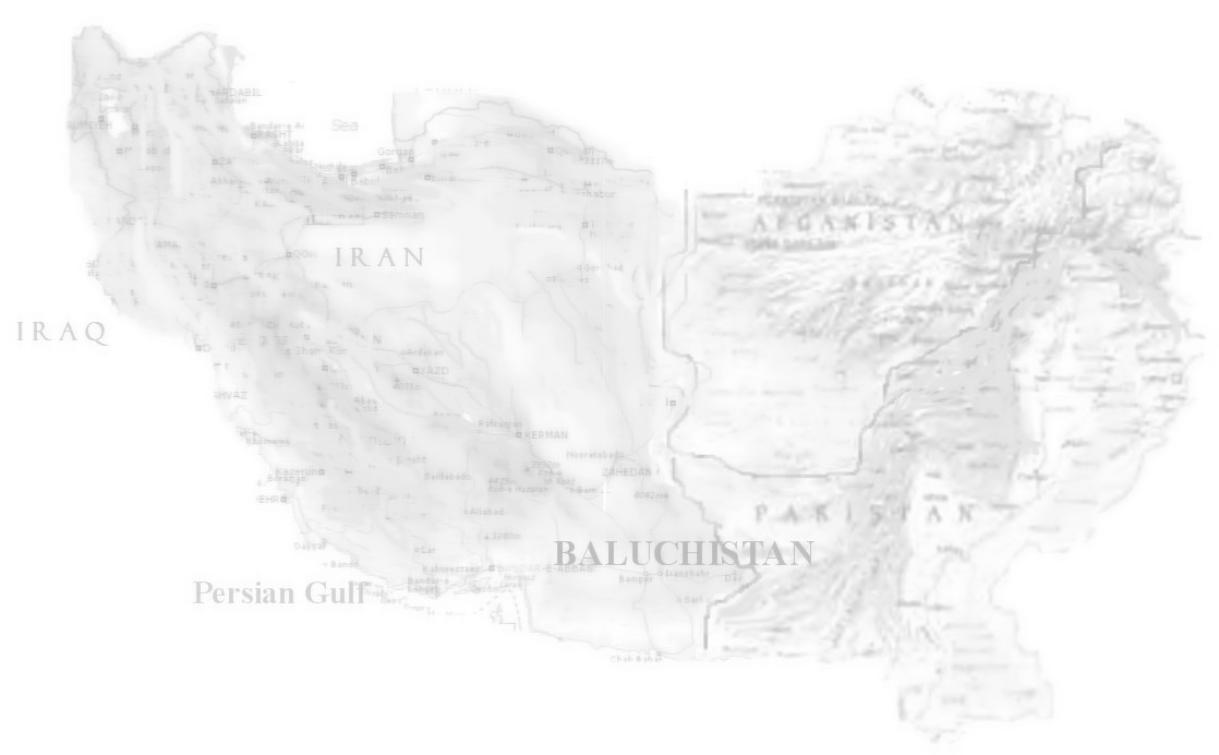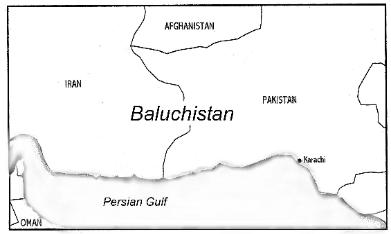
| The Baluch Agents |

- The history of anti-U.S. terrorism implicates no fewer than five key actors
who originate from the Pakistani Baluch ethnic community.
- • Khalid Sheikh Mohammed, the mastermind of the Sept. 11 attacks, is a Pakistani Baluch.
• So is Ramzi Yousef, who masterminded the 1993 World Trade Center bombing.
• In 1995, these two terrorists were joined by a third Baluch, Abdul Hakam Murad, in an
unsuccessful plot to bomb 12 U.S. airplanes.
• Three more Baluchis have been identified as major al Qaeda figures -- two brothers and a
cousin of Ramzi Yousef.
to do with the Baluch. Why should the Baluch seek to kill Americans? There is no apparent motive
for their decade-long, murderous campaign against U.S. civilian and military targets. And, unlike other
terrorist groups in the region, these Baluch terrorists are not fundamentalist Moslems.
The Baluch
The Baluch are a Sunni Muslim people who live in
Eastern Iran and Western Pakistan, in the arid and
mountainous region known as Baluchistan. The Baluch
are a distinct ethnic group with their own language,
and with strong tribal traditions that tend to preclude
a strongly Islamist ideology.
The most likely explanation for the terrorist campaign
against the U.S. is that this core group began their careers
– and developed their animosity to the U.S. – as part of
Iraq's Baluch network:
- "There are some four thousand Iranian Baloch in the Central Makran Range, fully armed and
supported by Iraq, who are running cross-border operations into Iran. No one can touch them--
not the Army, not the government. They do whatever they want." Mary Anne Weaver, Pakistan:
In the Shadow of Jihad and Afghanistan (New York: Farrar Straus and Giroux), p. 118.
opposition to the Shiite regime in Tehran. The former chief of Iraqi military intelligence, Wafiq
Samarrai, has told me that the Iraqi intelligence agency worked together with the Baluch during the
Iran-Iraq war (1980-1988); that Iraq sponsored an anti-Iran terrorist group called MKO; and that
Iraqi intelligence has well-established contacts with the Baluch on both sides of the Pakistan-Iran
border.
Pakistani investigators concluded that Ramzi Yousef had close links with the MKO (the anti-Iranian
terrorist group run by Iraq), and he is known to have conducted a bomb attack in Mashhad, Iran, in
1994.
To sum up: the terrorist attacks on the U.S. are connected through the ethnic and family
ties among the key terrorists. And those terrorists may have acquired their training, as
well as their anti-U.S. agenda, as part of Iraq's Baluch network.
| Home |
